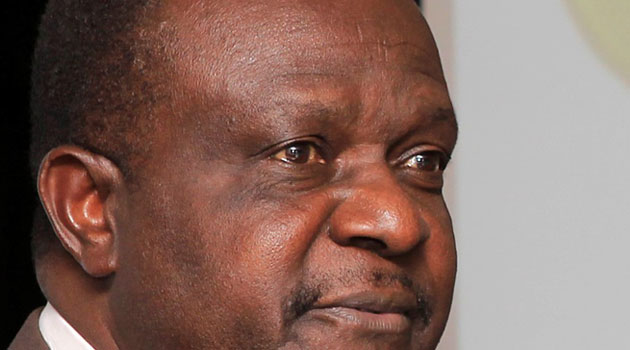
The Authority’s CEO James Oduor says that drought response in Kenya has often been late and reactive due to a number of institutional weaknesses/FILE
NAIROBI, Kenya, May 13 – Drought, like floods, is mostly unpredictable. And even though we are focused on the rains and the accompanying floods taking part in the country, it is important to talk about the reverse; drought.
According to the National Drought Management Authority of Kenya – the organisation mandated to establish mechanisms which ensure that drought does not result in emergencies – drought is a prolonged period of abnormally low rainfall and consequently a shortage of water resulting from this.
The Authority also clarifies the age old adage on whether drought can be eliminated completely; “it is impossible to tackle drought completely. Not even the West is drought free. It is only the severity of drought in these countries that vary from what the developing countries experience.”
Hence, the same magnitude of lack of rainfall may be experienced in one corner of the world as it is in another, but the preparedness and response of one and the lack of another, may be why its magnitude is perceived to be different.
– Where are the loopholes? –
The Authority’s CEO James Oduor says that drought response in Kenya has often been late and reactive due to a number of institutional weaknesses. Government systems of planning, budgeting and resource allocation are generally not flexible enough to deal with the inherent variability of dry land systems and their changing needs.
“Finance for drought response can only be obtained through budgetary re-allocations, which are lengthy and divert resources from long-term development.”
He also says that the problem with drought in many developing countries goes back to the methods of irrigation used across the board. For instance, Israel, which is a desert, is able to beat drought and feed many countries around the world owing to its irrigation methods.
These have long been lacking in Kenya.
Just under the President Uhuru Kenyatta’s administration have attempts to open up the irrigation system in the country through the Galana-Kulalu project have been launched. Although the project is yet to pick up despite the large amount of funding directed into it, the country can only wait to enjoy the results.
“Unlike in Kenya, many developed countries ensure that their priorities are streamlined and feeding their countries is a priority,” Oduor says.
By using the right irrigation methods, the CEO feels that the country could have more to achieve for itself including producing more food for export.
Hence, there is hope to minimize the effects of drought and get more food produced in Kenya. According to the CEO, devolution for instance, is the golden goose.
“If every county government explicitly dedicates its efforts towards ways of conserving the water it gets, and employing the right irrigation methods, then more could be done,” he says.









































